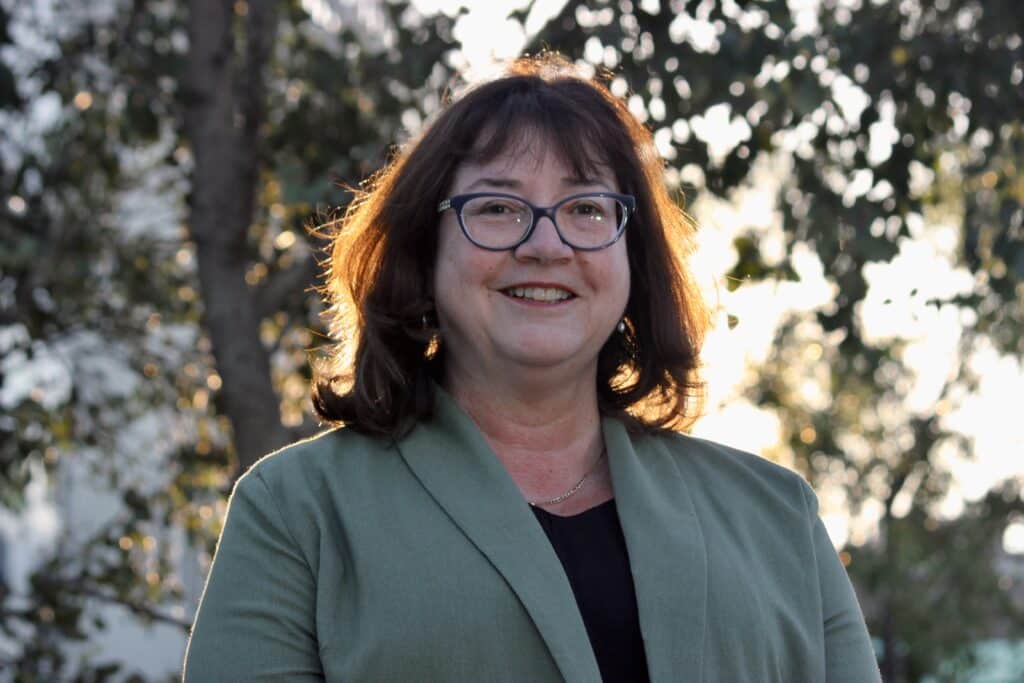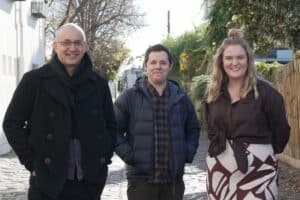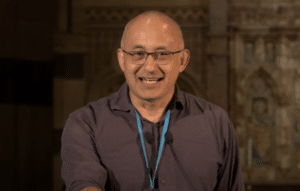
Jenan Taylor
20 May 2024
During the darkest of the long months that Ngaire Elwood, then aged 15, fought bone cancer, she thought often about what Jesus might want her to do.
That God made things happen for a purpose, was at the heart of the Christian faith the teenager had been raised with.
This belief sustained her during the hair loss, leg amputation, and brutal chemotherapy that accompanied her struggle, and she never questioned why she was struck with cancer.
Instead, she watched the doctors treat the other young patients in the ward around her, absorbing their efforts to help a young girl sick with leukaemia.
Dr Elwood still remembers their urgent discussions about a new drug imported from overseas. She recalls them connecting it up and the hope as they administered it to the girl. But she recalls the girl was incurable.
“It was their whole attitude of not giving up and wanting to find new ways of helping all these children, that stuck in my mind,” she said. “And I decided, yeah, I want to find better cures for cancer.”
Forty-four years later, Dr Elwood has shone at finding ways to better help others survive the disease.
Her Christian belief played a large role in her aim for excellence, she said.
Read more: With ‘no right to be alive’, Joe Mullins spent a lifetime serving God
Associate Professor Elwood is head of the Bone Marrow Donor Institute Cord Blood Bank at the Royal Children’s Hospital, and a leading researcher of cord blood stem cells at the Murdoch Children’s Research Institute.
She and her team at the BMDI Cord Blood Bank collect, process and store donated cord blood, deep freezing it in liquid nitrogen.
Cord blood is all the blood than can be derived from the umbilical cord and placenta after the birth of a baby. It is a rich source of blood stem cells similar to what is found in bone marrow.
Because of these similarities, it can be used in place of bone marrow during transplants to treat leukaemia.
Cord blood worked like a mini factory to help produce healthy cells that could replace the leukaemia cells, which could then cure the patient, Dr Elwood said.
Information is placed on the international bone marrow donor registry, and the blood is made available for patients who might need stem cell treatment.
Read more: ‘However bleak it gets … God has called us to make a difference’
In February the team celebrated as they watched the 600th unit of cord blood being wheeled away in its icy cradle to be shipped off to a patient somewhere around the globe.
Amid party poppers and streamers, Dr Elwood took camera snaps of the moment. Knowing those units would give someone hope was deeply satisfying for her.
But making a difference to people’s lives, Dr Elwood said, has warranted a range of contributions, big and small.
She is particularly excited about using cord blood stem cells to make other potential medical breakthroughs.
In recent years Dr Elwood and her team have been exploring how they might be used for heart and brain repair.
One trial she’s involved with is investigating whether cord blood cells could help very young babies born with heart abnormalities.
Dr Elwood has also been heavily involved in accreditation efforts to make sure banked cord blood meets rigorous quality standards, to make sure it was safe and effective for patients.
This work, which she does voluntarily, includes inspecting cord blood banks and writing standards for cell therapies in Australia and overseas.
Dr Elwood’s many paid and voluntary endeavours were recognised earlier this year when she was made a Member of the Order of Australia AM for her significant service to medicine, particularly through stem cell research.
Read more: Why this ex physicist teaches theology at a First Nations college
Her efforts outside the medical sphere have also been noted by her fellow Gisborne parish members.
At the Church of the Resurrection Macedon, which Dr Elwood calls her spiritual home, she has been a committed council and prayer team member.
Warden Heidi Dixon said she was also involved with Exploring Faith Matters ministry, helping to communicate Christian faith in an easy-to-understand way.
She sees Dr Elwood as someone who, above all else, cares deeply for people who struggle.
Despite having to travel frequently for work, she made considered efforts to be available as a prayer team member when needed.
“She feels the pressure of time, but she’s also mindful about the blessing of time, because she has been given a second chance,” Ms Dixon said.
Dr Elwood might well say she’s been given two second chances.
Read more: The Soweto priest God gifted to lead a mountain kingdom
In 2013 she was diagnosed with breast cancer, and faced radical surgery and more chemotherapy. It put her out of action for a year and a half.
All she could do was sit in her lounge room and on her front porch and watch the daffodils in her garden come and go with the passing seasons.
It gave her the time to look back on her life and see all the ways God had been with her all along.
Dr Elwood realised that once she’d decided on her path, the doors that led to her career opened.
Despite missing a great chunk of her critical schooling because of the bone cancer, her teachers at Sunshine High School took her under their wing, and she finished high school very well.
After that, there was a Rotary Foundation graduate scholarship which allowed her to study her master’s degree in a research lab in London.
Then came a role, seemingly at random, exploring leukaemia genes and blood cell development at the Walter and Eliza Hall Institute. A recommendation from her supervisor there helped her obtain a government scholarship to pursue her PhD.
It was like a metamorphosis, she said, when it dawned on her that time was indeed precious, but that what mattered more was faith.
“You can think you’re on track and things get upended, and everything seems a mess. When that happens you just have to sit with it and regain your strength because it’s all completely out of your control,” she said.
“God is shaping and providing things and you just have to have faith that things are going to work out if you allow yourself to be open to Him. There is always a plan for your life.”
For more faith news, follow The Melbourne Anglican on Facebook, Instagram, or subscribe to our weekly emails.






